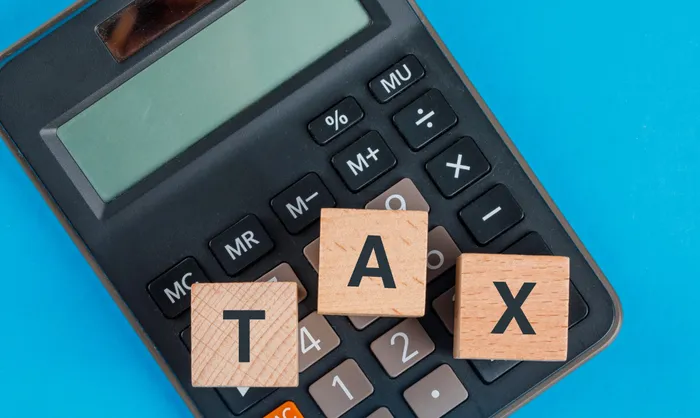
Are you ready for the tax season?
Image: Freepik
AFTER almost 20 years of helping South Africans navigate their finances, I've seen the same look of dread on clients' faces every July when tax season rolls around. This year feels different though.
SARS has significantly expanded its auto-assessment programme for 2025, and many of my clients are asking whether this could finally be their escape from the annual tax paperwork nightmare.
Here's the thing – I have learned that what appears to be a shortcut is not always the best route for your wallet. Between July 7 and 20, thousands of taxpayers will receive that coveted auto-assessment notification. Before you jump at what seems like an easy win, let me walk you through what I've discovered about these assessments and why getting this decision right could mean the difference between a healthy refund and leaving money on the table.
Think of auto-assessments as SARS doing your homework for you. They are pulling information from your employer, bank, medical scheme, and retirement fund to calculate what you owe or what's coming back to you.
Sounds brilliant, right? Well, here's where my years of experience come in handy. The problem I've noticed is that SARS can only work with what they can see. They don't know about that home office you have been running, the business trips you have logged, or the charity donations you have made.
This incomplete picture is where many of my clients have lost out on substantial refunds.
In my practice, I've found that SARS typically targets the "straightforward" taxpayers - those earning under R500 000 annually with a single employer and no complicated financial arrangements.
If you are getting your salary from one source and don't have rental properties, side businesses, or complex investments, you are probably on their radar. What is interesting this year is that SARS has opened the door to certain provisional taxpayers too. They are actually inviting some of these taxpayers to express interest in receiving auto-assessments.
It's a significant shift from previous years. But here's what I tell my clients: just because you qualify does not mean you should automatically accept. I have worked with plenty of "simple" taxpayers who were anything but simple when we dug into their actual financial lives.
When that auto-assessment lands in your inbox, you have two paths ahead of you.
- Path one - accept and walk away: If SARS got everything right, you are done. They finalise your return, and you can get on with your life. I've had clients who fit this category perfectly - single income, no deductions, everything above board. For them, it's genuinely a time-saver.
- Path two - take the wheel: This is where you reject their assessment and file manually by October 20. 2025 (or January 19, 2026 if you are a provisional taxpayer). Filing season opens on July 21, giving you plenty of time to gather your documents and tell your complete financial story. The question I always ask my clients is: "are you willing to bet your refund on SARS having perfect information about your life?". More often than not, the answer is no.
Let me share some real examples from my experience. Last year, I had a client who almost accepted an auto-assessment that would have given her a R3 000 refund. After she filed manually, claiming her work-from-home expenses and business travel, she walked away with R14 000.That's an R11 000 difference for about two hours of extra work.
Here's what SARS commonly misses:
- Work-from-home expenses have become huge since Covid-19 changed how we work. If you're running a home office, buying equipment, or paying for extra internet and utilities, these add up fast.
- Business travel claims can be substantial if you keep a proper logbook. Many of my clients are surprised by how much they can claim here.
- Medical expenses that your scheme doesn't cover. These out-of-pocket costs can significantly reduce what you owe.
- Charitable donations with proper Section 18A certificates. Not only are you supporting good causes, but you're also getting tax relief.
- Side income from freelancing, rentals, or investments. SARS might not capture all of this, which could land you in trouble later.
The pattern I have noticed is that taxpayers with any of these elements almost always benefit from manual filing. The extra effort pays for itself through bigger refunds or avoided penalties.
I have seen the other side of this coin too. Clients who accepted auto-assessments without proper review and later faced SARS audits. One client got hit with an additional R25 000 assessment three years later when SARS discovered unreported consulting income. The penalties and interest made it even worse.
When you accept an auto-assessment, you are essentially signing off on SARS's version of your financial story. If they missed income or got something wrong, you are still responsible, not the other way around thinking that you have got away because SARS didn’t pick something up.
Future audits become more likely, and the costs of fixing mistakes later can be substantial. This is why I always tell my clients: accepting an auto-assessment isn't just about this year's tax season - it's about protecting your financial future.
When clients decide to reject their auto-assessment, here's the roadmap I give them:
- Get your documents together: Start with your IRP5 or IT3(a) from your employer, medical aid tax certificates, proof of retirement fund contributions, and any business expense receipts. If you're claiming travel, make sure your logbook is up to date.
- Choose your filing method: You can use SARS eFiling directly, or work with a tax practitioner who can spot deductions you might miss.
- Double-check everything: This is where most people make mistakes. Make sure all your income sources are declared and you're claiming every legitimate deduction.
Auto-assessments issued: July 7 to 20 July 2025
Manual filing opens: July 21, 2025
Manual filing deadline: October 20, 2025 (non-provisional taxpayers)
Provisional taxpayers: July 21, 2025, until January 19, 2026
After helping hundreds of clients through tax seasons, here is what I have learned: auto-assessments work brilliantly for genuinely simple tax situations. If you're a single-income earner with no deductions and no side income, accepting could save you valuable time. But if there's any complexity in your financial life - and I mean any - manual filing almost always pays off.
The extra effort typically translates into better refunds and, more importantly, peace of mind that you've got everything right.
Check your SARS correspondence from early July, review any third-party data on eFiling for accuracy, and keep all your records for at least five years. Most importantly, don't let convenience override good financial sense.
Remember, SARS processes millions of returns, but only you truly understand your complete financial picture. Whether you choose the convenience of auto-assessment or the control of manual filing, make it a decision that protects and optimises your financial position.
Your future self - and your bank account - will thank you for taking the time to get this right.

Sanjith Hannuman
Image: File
Sanjith Hannuman is the managing director of Avinash Consultants & Actuaries.
Disclaimer: The views expressed in this column are my personal opinions based on my experience in the financial services industry. This content should not be construed as professional financial or tax advice. Tax regulations and individual circumstances vary significantly, and what works for one person may not be suitable for another. Always consult with a qualified tax practitioner or financial advisor before making any tax-related decisions.